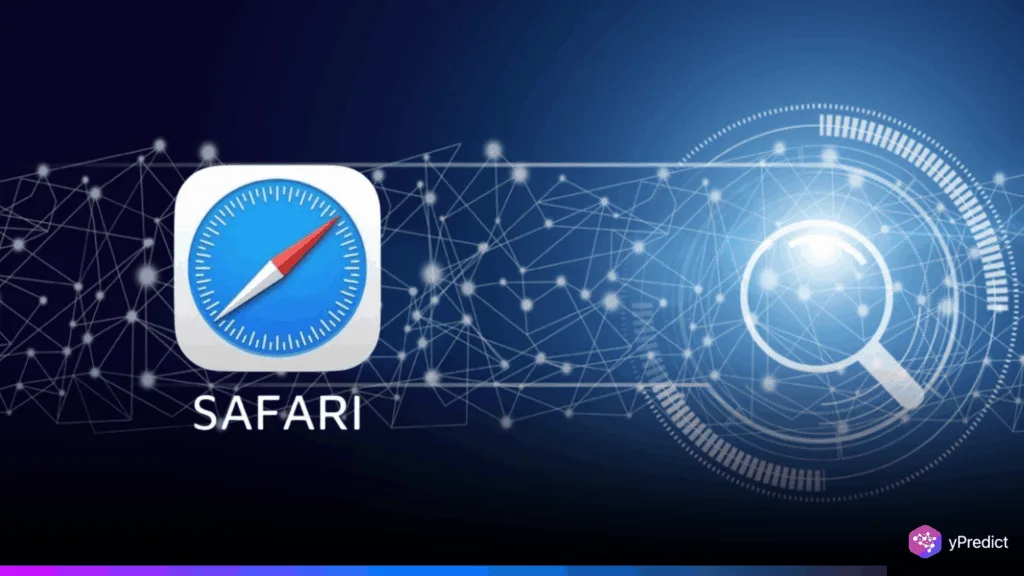
Apple is preparing to change its approach to browsers through AI search integration. This change in approach comes after the Safari browser’s search activity began to decline for the first time in April 2025. Eddy Cue says Apple is trying to adapt to shifting consumer preferences by partnering with AI companies like OpenAI and Perplexity. As WWDC 2025 draws near, Apple seems poised to upend traditional web search experiences while maintaining its relationship with Google.
Apple Safari Reinvention Begins with AI Search Integration
Apple hopes to re-engage users who are increasingly interested in AI-based information tools through AI search integration. According to Mark Gurman, Apple is getting ready to add selectable alternatives to services like Perplexity and ChatGPT in the browser. This action reflects the growing need for generative AI’s ability to produce faster, more intelligent search results.
The plan was revealed by Cue when he testified in the U.S. Justice Department’s antitrust case against Google. An ongoing legal dispute surrounds the $20 billion deal that ensures Google Search will remain the default on Apple devices. Even though Apple still benefits financially from this arrangement, Cue recognized that the market is evolving and that consumers now demand more interactive and AI-driven outcomes.
AI Search Integration Drives Next Search Evolution
Google search and other traditional engines are facing competition as users move toward tools that provide conversational, real-time answers. By incorporating ChatGPT into Siri, Apple has already taken the first step toward giving Siri advanced voice assistance. Continuing that momentum, the business is negotiating with Perplexity AI to strengthen its ecosystem through extensive AI search integration.
Apple intends to list these new AI tools as viable options within its browser, even though they won’t replace current engines right away. Cue emphasized how well they summarized, answered questions, and interacted intuitively. Although their indexing capabilities are currently limited, the change in user behavior indicates that these features are more than sufficient to adopt.
This AI-driven shift is a strategic shift rather than merely a feature addition. Apple understands that personalized, responsive intelligence will be crucial to its future search dominance. However, Cue acknowledged that he was worried about the possible loss of revenue if the current Google agreement were changed.
Will Apple’s AI Strategy Reshape Search Habits?
Apple is taking a risk with AI search integration, even though it isn’t completely giving up on Google search. According to Cue, as generative tools advance, they will draw users looking for quick and easy solutions. The goal is to future-proof Apple’s search ecosystem by offering alternatives before AI competitors take over the market.
To stay up to date, Google has responded by introducing its own AI advancements. Recently, CEO Sundar Pichai announced that the company is negotiating to integrate its Gemini AI into upcoming Apple products. Even though that collaboration might take time to develop, Apple is already reworking its browser. The company aims to take advantage of new AI-driven discovery opportunities.
Following the announcement of Apple’s move, Alphabet’s stock fell 7.6%, losing more than $150 billion in value. Analysts caution that ad spend trends may change significantly if advertisers discover strong substitutes for Google’s ad-supported search engine. On the other hand, Apple sees this as a chance to shape search in the post-keyword era.
Apple Prepares for Smarter Browser Future
Apple has made a significant shift in digital browsing with its move toward AI search integration. Although Safari Browser remains the company’s primary browser, it is developing into a more intelligent and flexible platform. Apple purposefully introduced a number of search options, including ChatGPT and Perplexity, as generative AI tools become more popular. The change demonstrates the permanence of intelligent, user-focused search.





